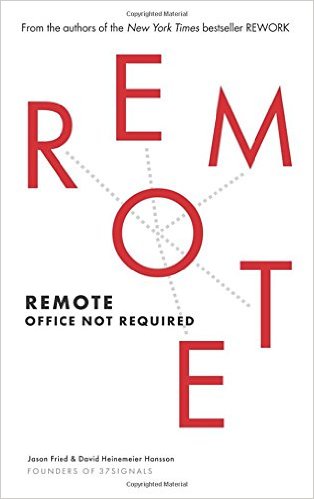Remote: Office Not Required
I recently read Remote: Office Not Required by David Heinemeier-Hansson (who created Ruby on Rails) and Jason Fried (who co-founded 37 Signals with Heinemeier-Hansson). This book is really a case study in why the future of work will be remote, of which the book did convince me (but I would say, I already believed).

The book is really structured to convince those who do not believe in the premise of the title. It talks about many successful companies who have transformed themselves to work remotely fully and large corporations who save lots of money on office space (IBM, being one example).
